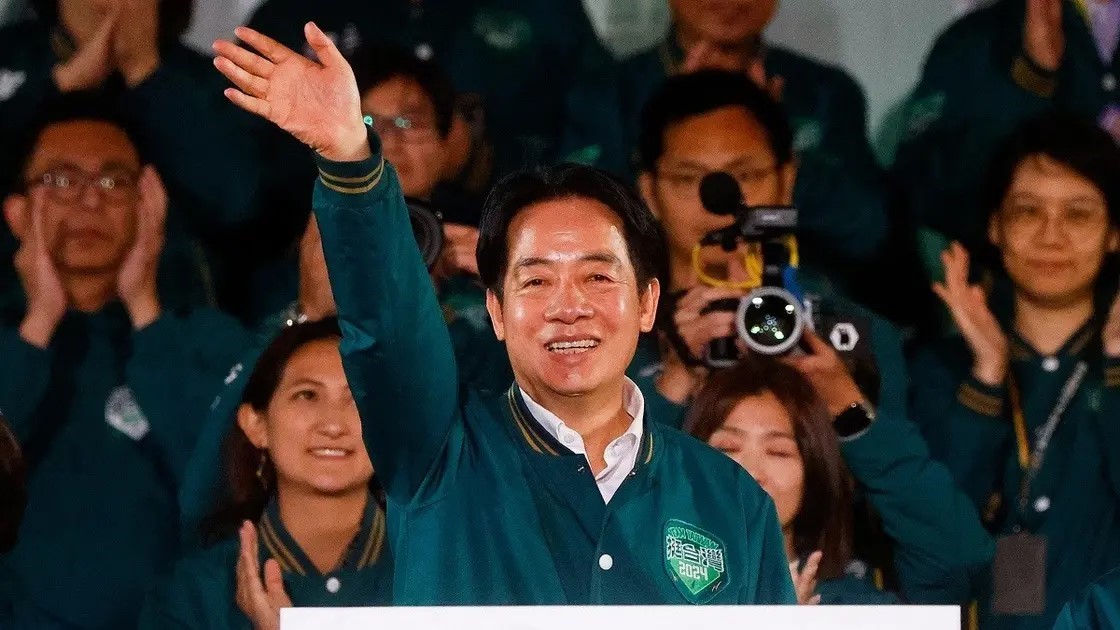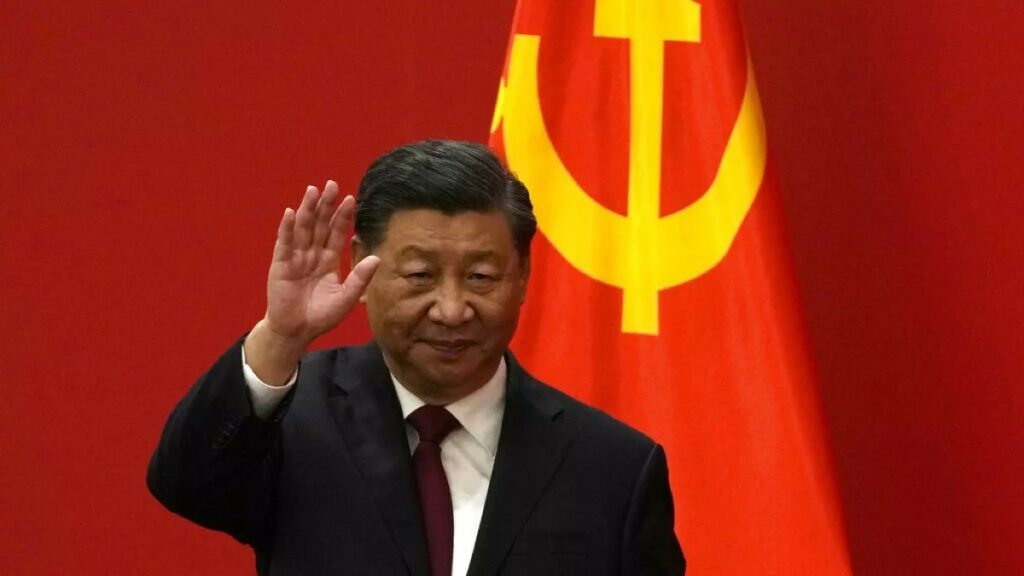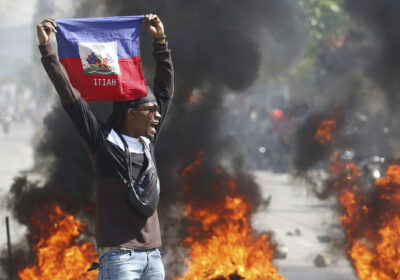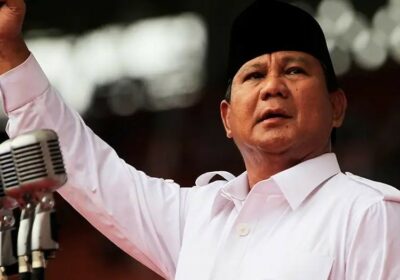TAIWAN: LAI CHING-TE’S DIFFICULT TERM IN OFFICE

In Taiwan, one of the world’s most iconically important regions, Lai Ching-te won the presidential election on Saturday 13 January. His Democratic Progressive Party (DPP) wins a third term after the double election of outgoing President Tsai Ing-wen in office since 2016.
The victory, in truth largely announced, is sealed by 40% of the vote. Opposition Kuomintang (KMT) party candidate Hou Yu-ih garnered 33.49% of the vote, while Taiwan People’s Party (TPP) candidate Ko Wen-je got 26.45%. More than 14 million people took part and the turnout was just over 71%.
Although an almost certain victory for Lai had already been looming for some time, because of the high stakes the election was awaited with not a few worries and the eyes of the whole world were on him. Taiwan is unique in geostrategic and industrial terms: 60% of the world’s semiconductors and over 90% of the most advanced semiconductors are produced here, most of them by a single company, Taiwan Semiconductor Manufacturing Corporation (TSMC)[1] .
What focuses the world’s attention on Taiwan is that a fearsome sword of Damocles has been hanging over its head for decades: the People’s Republic of China, which has been claiming its annexation in increasingly aggressive tones. The island de facto separated from the Chinese mainland after the Second Civil War, when the Kuomintang separatists took refuge there and created an autonomous state, equipping itself over the years with its own political system, its own government, its own constitution, its own army and its own currency, obviously without the consent of the PRC, which it stubbornly refuses to recognise.
China’s hostile attitude takes on worrying overtones, especially under the government of Xi Jinping, who vows to reannex the island by hook or crook, never missing an opportunity to stage spectacular and provocative demonstrative actions, trespassing with fighter jets and military ships in Taiwanese seas numerous times in recent years, even launching missiles towards the island without ever hitting it.
The climate now resembles that of an imminent declaration of war to which the world looks on with serious concern: at stake is not only industrial control of the region – imagining a country like China having full world control of the production of electronic chips opens up terrifying scenarios in itself – but also geostrategic control: the position of Taiwan, an island in the middle of the so-called First Chain of Islands running from Japan southwards through Taiwan and the Philippines to Indonesia and Malaysia, represents an important barrier for China to dominate the sea[2] .
Without this barrier, it would be easier for China to leave its ports in the direction of the Pacific and thus be able to exert pressure towards Japan, Hawaii or even the western coasts of the United States.
What will happen with Lai Ching-te

President Xi Jinping vows to ‘retake’ Taiwan before his term expires[3]
For Xi Jinping, Taiwan must be re-annexed as soon as possible, but he certainly does not have the consent of the island’s inhabitants, where separatists are the overwhelming majority and where citizens continue to show that they have built a very solid democracy and love it deeply. In addition, the latest elections indicate a very clear direction towards openness to the world, a sentiment that is impervious to the beating propaganda that the PRC has been putting out for years: social, media, politics, cyber-warfare, as well as military and commercial pressure, all actions that do not seem to dent the democratic choice.
The precarious balance is also played out with the wise diplomatic relations between the two realities: despite the hostilities and the constantly tense relations, the outgoing president nevertheless seemed to have found a certain balance, albeit a laboured one, managing to soften some asperities with Xi Jinping, even though she is considered a separatist by the regime and despite the fact that she has chosen to promote the modernisation and expansion of military defences with huge investments and with the active part of the United States, a policy inevitably considered an unacceptable provocation for Beijing.
But with the new leader Lai Ching-Te, relations could worsen: the newly elected, considered by the regime as a dangerous separatist[4] , is in fact one of the most convinced in the current Taiwanese political landscape in pursuing an independence programme. Lai’s firm and clear positions are certainly the main driving force behind his popularity and which led to his election, but they may be the biggest obstacle in relations with Xi Jinping.
In his first speech during the victory announcement, Lai reiterated that he had chosen to ‘stand on the side of democracy’ as opposed to authoritarianism. The following night, the Chinese Bureau of Taiwan Affairs downplayed the victory, stating that the result could in no way represent mainstream public opinion in Taiwan, adding that these elections would not stop the ‘unstoppable trend towards the eventual reunification of the motherland’[5] .
The tensions between the two shores therefore seem destined to intensify: Chang Wu-ueh, an expert on relations between the two countries, is convinced that ‘pre-election measures of military intimidation and economic pressure are much more likely to be reinforced in the post-election era’, and this is the most widespread opinion among analysts[6] .
The question that the whole world keeps asking itself is how far the tensions will go and whether they will ever result in the dreaded option of a military aggression so much threatened by China. The latter would be disastrous for all those involved because of the vast implications it would naturally bring with it: Xi Jinping knows this well and is perhaps the biggest brake for now. The ticking clock, however, is being used by both contenders for an increasing military build-up: according to a US Pentagon report[7] China, in addition to increasing all other armaments, is about to increase its nuclear weapons arsenal very rapidly, with the intention of quadrupling it by 2035. These are certainly not manoeuvres that suggest good omens.
Lai Ching-Te has therefore been given a titanic task, to say the least, and at a particularly complex stage: to try to continue towards independence by pandering to the will of the people but at the same time to keep relations with Beijing as strained as possible, with Xi Jinping increasingly determined to re-annex the island before the end of his term of office without wanting to come to terms with anyone.
The world has no choice but to watch, not least because external actors capable of contributing to a mediation do not seem to exist at present, and history teaches us that relying on human goodwill, especially in political matters, is rarely an effective solution.
JPN031
[1] https://theglobalpitch.eu/it/2023/11/12/taiwan-the-perennial-anguish-of-invasion/
[2] https://theglobalpitch.eu/it/2023/11/12/taiwan-the-perennial-anguish-of-invasion/
[3] https://it.euronews.com/2022/10/23/cina-il-presidente-xi-jinping-confermato-leader-del-partito-comunista-continueremo-ad-apri
[4] https://www.dw.com/en/china-says-taiwan-presidential-favorite-a-severe-danger/a-67948558
[5] https://www.dw.com/en/how-will-taiwans-new-leader-shape-relations-with-china/a-67976109
[6] https://www.dw.com/en/how-will-taiwans-new-leader-shape-relations-with-china/a-67976109
[7] https://media.defense.gov/2023/Oct/19/2003323409/-1/-1/1/2023-MILITARY-AND-SECURITY-DEVELOPMENTS-INVOLVING-THE-PEOPLES-REPUBLIC-OF-CHINA.PDF




Leave a Reply